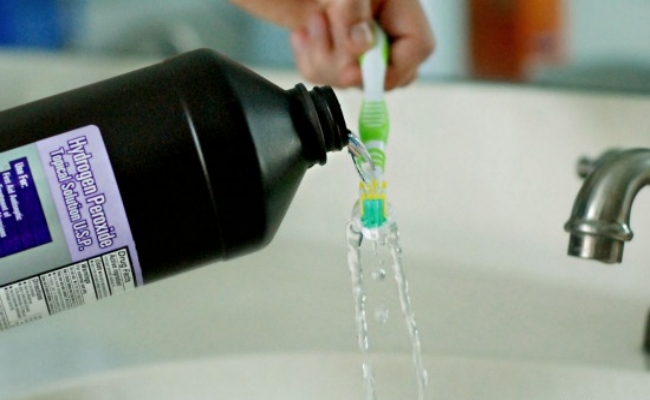

It’s utilized in the textile sector as an antichlor to eliminate excess chlorine after bleaching. Aids in the treatment of fungal infections in plants and the clearing of algae-infested ponds. It can also be used as a mouthwash to clear mucus and soothe minor mouth discomfort. Hydrogen peroxide is a mild antiseptic that can be used for small cuts, scratches, and burns to prevent infection. It can be used to sterilize cosmetic brushes and sanitize toothbrushes. In aquaculture, hydrogen peroxide is utilized to decrease mortality caused by different microorganisms. H 2O 2 solution is utilized as a propellant for torpedoes and submarines, as well as an oxidant for rocket fuel. New bloodstains are removed with hydrogen peroxide. Human hair is bleached with diluted hydrogen peroxide combined with aqueous ammonia. Pulp and paper bleaching consumes around half of the world’s hydrogen peroxide production. The following are some of its applications: To improve and accelerate processes, it is sometimes coupled with other agents. It works in all media, including water, air, wastewater, and soils. Hydrogen peroxide is a fluid that can be used in a variety of ways. It’s acidic, with a pH of 6 to 7 at 298 degrees Fahrenheit. It is used as a disinfectant as well as a bleaching agent. Photochemical reactions in the atmosphere around the earth produce gaseous hydrogen peroxide. Hydrogen peroxide can be found in very low amounts in the environment. The simplest member of the peroxide family is hydrogen peroxide, which was originally discovered as a chemical substance in 1818 by French chemist J.L Thenard. Each atom of the most common hydrogen isotope (symbol 1H) has one proton, one electron, and no neutrons. The majority of hydrogen on the planet is found in molecule forms like water and organic substances. The Sun, for example, is mostly made up of hydrogen in its plasma state. Hydrogen is the most abundant chemical element in the universe, accounting for around 75% of all ordinary stuff. It’s odorless, colorless, non-toxic, and extremely flammable. Under normal circumstances, hydrogen is a gas composed of diatomic molecules with the formula H 2. The chemical element hydrogen has the symbol H and the atomic number 1. Class 11 NCERT Solutions - Chapter 3 Trigonometric Function - Exercise 3.1. Average and Instantaneous Rate of Change. Augmented Assignment Operators in Python. Class 11 NCERT Solutions - Chapter 7 Permutations And Combinations - Exercise 7.1. Importance of Chemistry in Everyday Life. Difference Between Mean, Median, and Mode with Examples. What is the Difference between Interactive and Script Mode in Python Programming?. ISRO CS Syllabus for Scientist/Engineer Exam. ISRO CS Original Papers and Official Keys. GATE CS Original Papers and Official Keys. USES FOR HYDROGEN PEROXIDE SKIN
If used with necessary precautions, the chemical can prove to be wonderful, especially in procuring a lighter skin tone. According to beauty expert Shantanu Jha, CEO, Zooty Beauty App, hydrogen peroxide eliminates skin discoloration, age spots, blemishes and scars.

The release of oxygen causes foaming that helps to remove the dead skin cells and clean the area, hence clearing acne scars. It works by releasing oxygen on the affected area. It also acts as a disinfectant and antiseptic for the skin to prevent any infection caused by minor cuts, bruises or burns. Hydrogen peroxide is majorly used for skin lightening and acne. But did you know it is also used for various beauty regimes including hair, skin, teeth and ears? We are to tell you some of its amazing uses for various beauty regimes that you might want to consider some time soon.ĭepending on your skin, dry or oily, you can see if it suits your type, otherwise it may cause unnecessary irritation and sting. Considered as one of the safest and effective natural sanitisers, the type of hydrogen peroxide that is available in grocery stores is usually a three percent concentration, while the remaining percentage is water. It also makes a brilliant substitute for bleach. It acts as a cleansing agent and a disinfectant, and is easily available for cleaning purposes. Hydrogen peroxide has a long standing reputation of being the only germicidal agent composed of oxygen and water, which has innumerable uses and benefits.






 0 kommentar(er)
0 kommentar(er)
